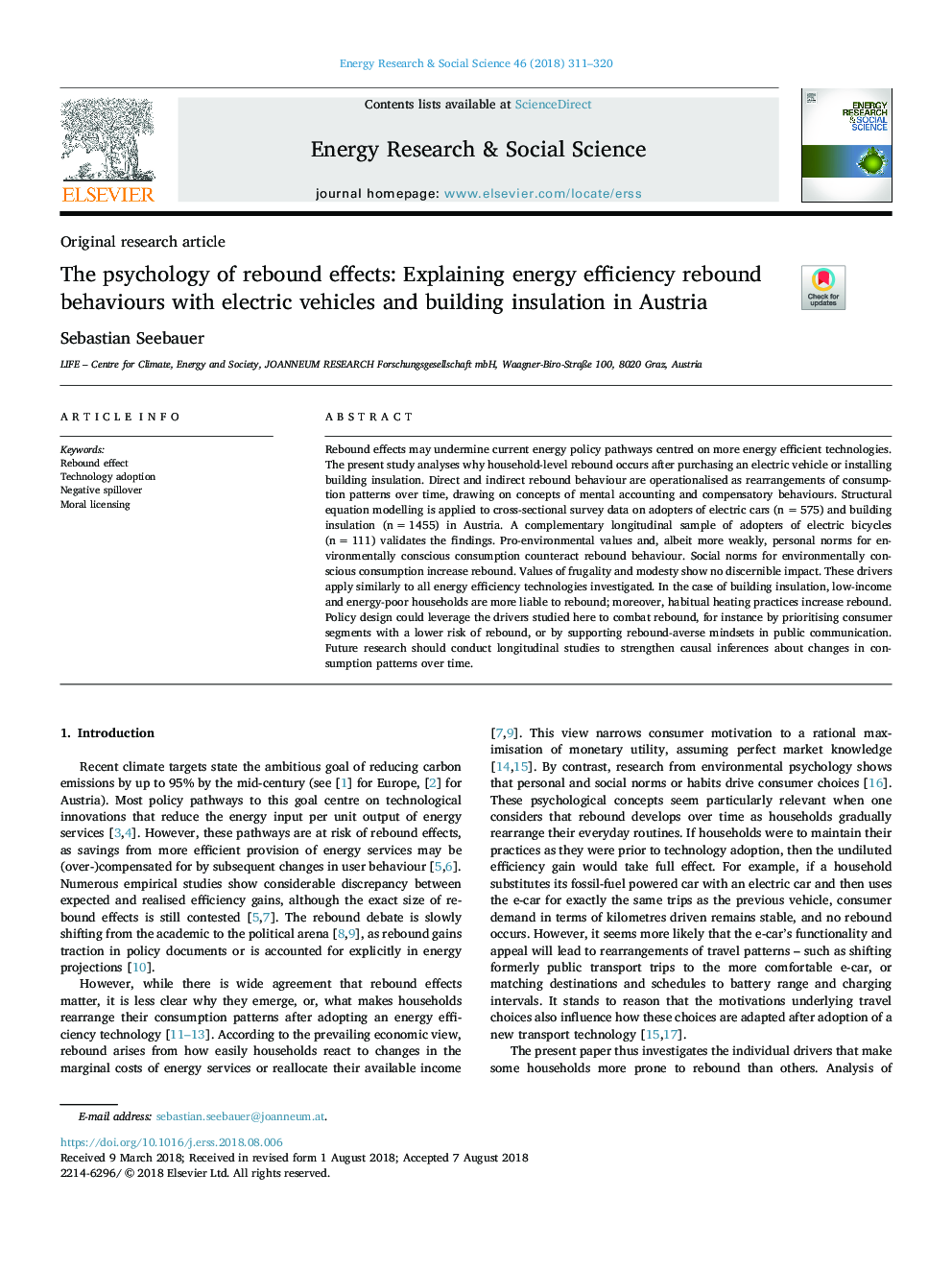| Article ID | Journal | Published Year | Pages | File Type |
|---|---|---|---|---|
| 6557106 | Energy Research & Social Science | 2018 | 10 Pages |
Abstract
Rebound effects may undermine current energy policy pathways centred on more energy efficient technologies. The present study analyses why household-level rebound occurs after purchasing an electric vehicle or installing building insulation. Direct and indirect rebound behaviour are operationalised as rearrangements of consumption patterns over time, drawing on concepts of mental accounting and compensatory behaviours. Structural equation modelling is applied to cross-sectional survey data on adopters of electric cars (nâ=â575) and building insulation (nâ=â1455) in Austria. A complementary longitudinal sample of adopters of electric bicycles (nâ=â111) validates the findings. Pro-environmental values and, albeit more weakly, personal norms for environmentally conscious consumption counteract rebound behaviour. Social norms for environmentally conscious consumption increase rebound. Values of frugality and modesty show no discernible impact. These drivers apply similarly to all energy efficiency technologies investigated. In the case of building insulation, low-income and energy-poor households are more liable to rebound; moreover, habitual heating practices increase rebound. Policy design could leverage the drivers studied here to combat rebound, for instance by prioritising consumer segments with a lower risk of rebound, or by supporting rebound-averse mindsets in public communication. Future research should conduct longitudinal studies to strengthen causal inferences about changes in consumption patterns over time.
Related Topics
Physical Sciences and Engineering
Energy
Energy (General)
Authors
Sebastian Seebauer,
